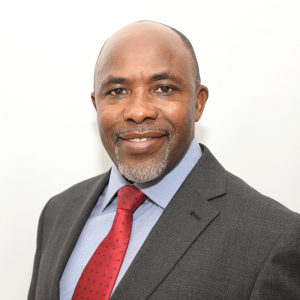Distinguished colleagues,
Esteemed Partners,
Representatives from the Eswatini National Blood Transfusion Service,
fellow UN staff and family members.
Good afternoon.
It is my honour and privilege to welcome you all to this year’s commemoration of World Blood Donor Day, under the powerful and inspiring theme: “Give blood, give hope: together we save lives.” Today, as the United Nations family in Eswatini, we join the global community in paying tribute to the millions of voluntary blood donors whose simple, yet profound act of kindness gives others a second chance at life.
For the past seven years, UN staff in Eswatini have come together in solidarity to mark this day not only with words, but also with action. By rolling up our sleeves, we have reaffirmed our commitment to the values of compassion, empathy, and humanity that underpin our work.
Blood is life. Every few seconds in Eswatini, someone—a mother in childbirth, a patient undergoing surgery, a victim of an accident—needs a transfusion. Without enough safe blood, many lives are lost.
In 2024 alone, the Eswatini National Blood Transfusion Service (ENBTS) collected over 18,000 units of blood, primarily from voluntary non-remunerated donors. Despite this progress, the country continues to experience seasonal shortfalls, especially during school holidays when student donors are unavailable. This makes efforts like today’s blood drive even more crucial.
Today’s act of giving is an act of hope. It is a reminder that even in the face of limited resources, we can each be a source of healing and strength for someone in need. A single donation can save up to three lives. And through our collective effort, we are helping to build a more resilient health system and a more compassionate society.
Across the region, we can find powerful examples of how the UN system is supporting blood donation initiatives through innovation and strong partnerships:
- In Zimbabwe, the UNFPA Country Office has worked closely with the Ministry of Health and the National Blood Services of Zimbabwe to integrate blood donation into maternal health programs, helping to reduce maternal mortality rates through targeted campaigns and community blood drives.
- In Namibia, the WHO Country Office has supported the Ministry of Health in strengthening the national blood policy and quality assurance systems, which has led to increased safety and availability of blood throughout the country. This collaboration has also included technical support for training blood bank staff and enhancing data systems.
- In Malawi, a joint effort by UNICEF and the Ministry of Education has introduced blood donation education into school health programmes, encouraging young people to become regular donors and health ambassadors in their communities. This youth-led model has been praised for its sustainability and community reach.
These best practices show what is possible when the UN system leverages its convening power and technical expertise to support national priorities and promote a culture of voluntary donation. They are a reminder that through partnership, innovation, and determination, we can overcome challenges and build stronger, more equitable health systems.
I wish to acknowledge and thank our colleagues from WHO, UN Cares, and the UNCG, who have organized today’s activity, and our partners from the Eswatini National Blood Transfusion Service for their vital role in ensuring that blood donated is safe, accessible, and available to those who need it most.
Let us continue to embrace healthy lifestyles so that we remain eligible donors. Let us take pride in being part of a tradition that reflects the very best of humanity. And above all, let us remember that through each drop of blood, we are giving not only life—but hope.
Thank you for your continued commitment. Let’s give blood. Let’s give hope. Together, we save lives.
Ngiyabonga. Thank you.



